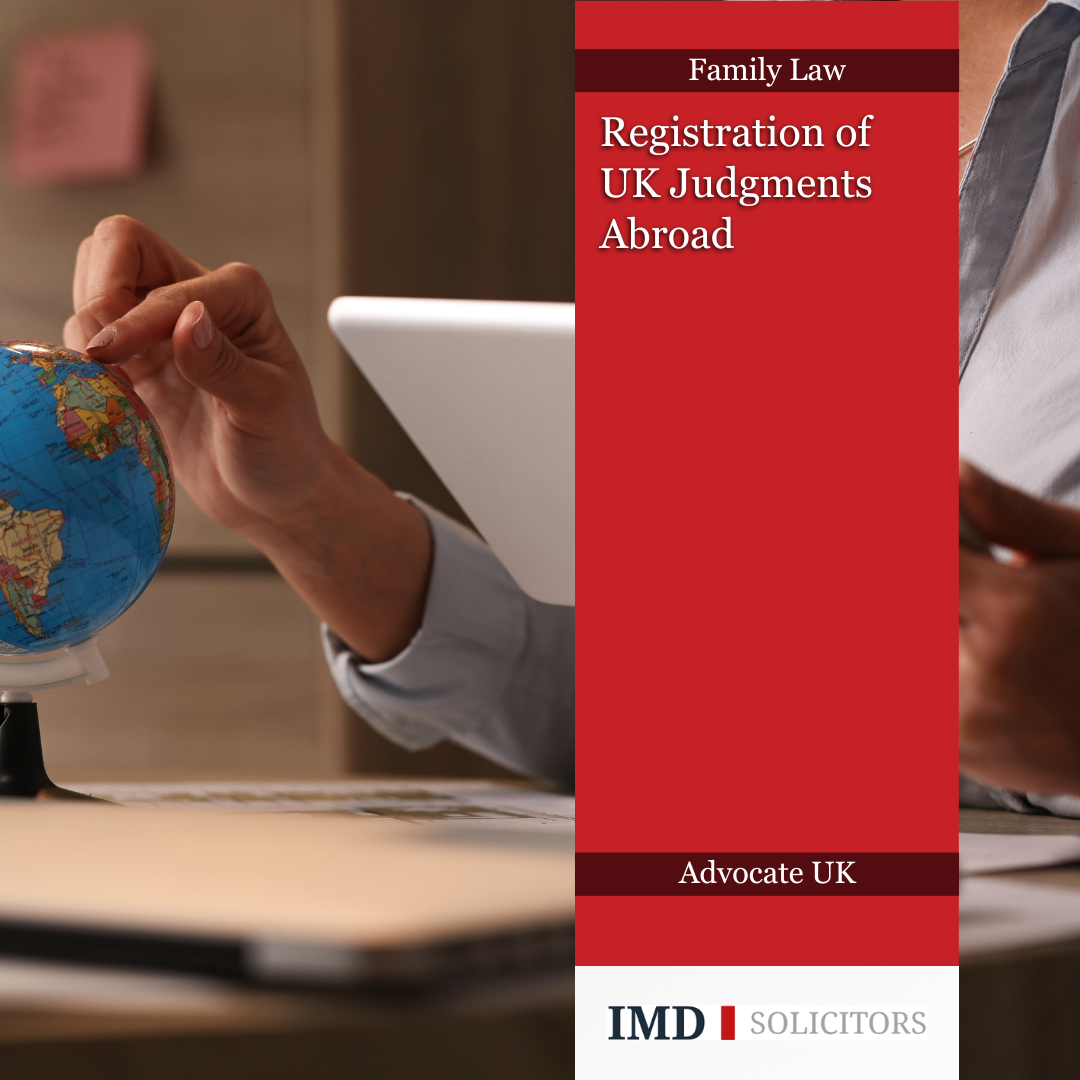
At IMD Solicitors LLP we deal with numerous cases that require the registration of UK orders in foreign jurisdictions, such as Romania, Poland, Spain. This case study aims to shed light on the process involved in ensuring that a UK court order is recognized and enforced in another country, using Romania as a primary example. This process is essential for clients who have undergone legal proceedings in the UK, such as divorce or child custody cases, and need the outcome to be acknowledged in their home country.
The necessity for registering a UK final order in other countries stems from the fact that a UK order is not automatically recognised internationally. The legal framework across countries varies, necessitating a specific procedure to ensure that such orders are acknowledged and enforced abroad. This procedure typically involves several steps, starting from obtaining the final order in the UK to its registration in the destination country.
The first step involves obtaining the final order from the UK court, which would be a Final Order (previously known as Decree Absolute) in the case of a divorce. This document, as issued, is not directly recognised by other countries. Therefore, additional documentation is required. This includes having the final order stamped and signed by a UK judge and obtaining a certificate under Article 39 of the European Convention 2201/2003. These documents are crucial for the legal process in the foreign jurisdiction.
Once the necessary documents are prepared, they must be legalised to be valid internationally. This involves obtaining the Hague Apostille, a form of authentication that certifies the authenticity of documents for use in countries that are parties to the Hague Convention of 1961. The UK Legalisation Office is responsible for affixing the apostille to the documents, verifying their legitimacy for international use.
After legalisation, the documents must normally be translated into the official language of the country where the order is to be registered. This step is vital to ensure that the legal documents are understood by the authorities in the foreign jurisdiction. Professional translation services are often employed to maintain the accuracy and legality of the translated documents.
The final step involves the actual registration of the order in the destination country. This usually requires collaboration with local lawyers who are familiar with the country’s legal system and procedures. An application must be made to the courts in the foreign jurisdiction to recognise and enforce the UK order. This part of the process is critical and often requires detailed knowledge of both UK and foreign legal systems.
Throughout the process, it is paramount to work closely with legal professionals both in the UK and the destination country. Collaboration between solicitors and local lawyers ensures that each step is carried out correctly and efficiently. It is also important for clients to be aware that the process involves multiple stages and may require time and financial resources. While some law firms may not offer a fixed fee for this service, clear communication about costs and procedures can help manage client expectations.
A notable case involved a client who required our assistance to register a final order from a UK court in Spain concerning their child. This case exemplifies the intricate process of ensuring that decisions made by UK courts are recognised and enforced abroad, a service frequently sought after by clients navigating the aftermath of family proceedings.
Upon obtaining the final order from the UK court, our primary objective was to facilitate its recognition by the Spanish legal system. This process involves not just a straightforward submission of documents but a coordinated effort between legal professionals across borders. The initial step was to gather all necessary documentation from the UK court, ensuring everything was in order and compliant with both UK and Spanish legal standards.
Following the acquisition of the required documents, our role expanded to include liaising with Spanish lawyers. This collaboration is crucial for navigating the legal landscape in Spain, where the final order must be registered with the Spanish courts to have legal effect. The ongoing nature of this case highlights the dynamic and often prolonged efforts involved in cross-border legal matters, underscoring the importance of expertise in both the originating and target jurisdictions to achieve a successful outcome.
The registration of UK orders in foreign jurisdictions is a multifaceted process that requires thorough understanding and careful execution of international legal procedures. By ensuring that all necessary steps are taken, from obtaining and legalising documents to collaborating with foreign legal professionals, clients can achieve the recognition and enforcement of UK legal decisions abroad. This case study underscores the importance of seeking experienced legal assistance to navigate the complexities of international law, ensuring that clients’ legal matters are resolved effectively across borders.
This article is for general information only and does not constitute legal or professional advice. Please note that the law may have changed since this article was published.